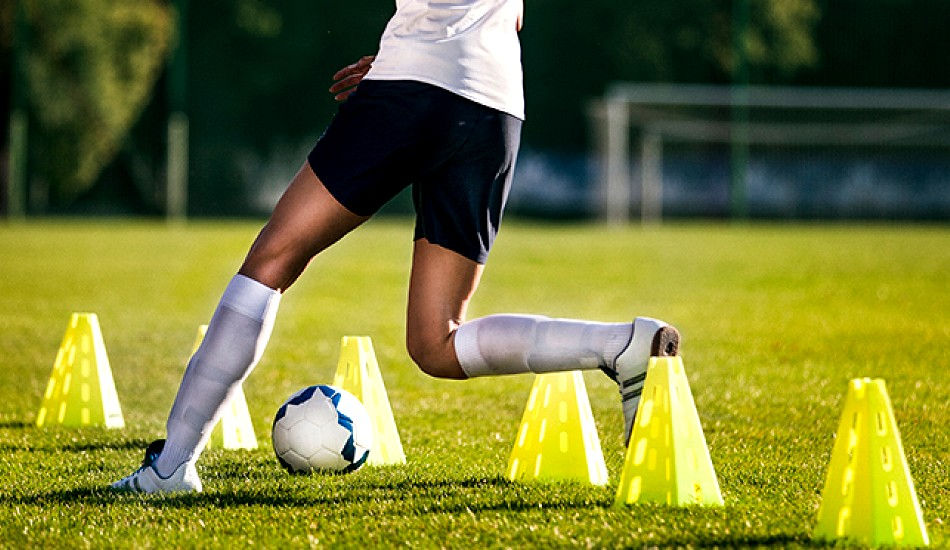ACL Injury in Football Players and Return to Sports Assessment – A Physio360 Perspective.
- PHYSIO 360

- Jun 11
- 2 min read

INTRODUCTION;
Football is a high-speed, high-impact sport demanding agility, rapid changes in direction, and intense lower limb coordination. One of the most feared injuries among footballers is the Anterior Cruciate Ligament (ACL) tear. At Physio360, we specialise in helping athletes return safely and confidently to their game through a structured rehabilitation and Return to Sport (RTS) assessment protocol.
What is an ACL Injury?
The ACL is a key ligament that stabilises the knee during movement. It prevents the shin bone from sliding forward and provides rotational stability. ACL injuries typically occur during:
Sudden direction changes
Pivoting or twisting movements
Improper landings after a jump
Direct trauma to the knee
Symptoms:
A loud "pop" at the moment of injury
Intense pain and swelling
Knee instability
Loss of full range of motion

Why Footballers Are at Higher Risk.
Football players frequently engage in cutting, pivoting, and jumping—activities that put immense stress on the ACL. A poorly timed tackle or awkward landing can instantly lead to a partial or complete tear.
ACL Rehabilitation at Physio360.
At Physio360, we provide evidence-based rehabilitation tailored for football players, combining:
🔹 Phase 1: Protection and Early Mobility
Pain and swelling management
Passive and active ROM exercises
Weight-bearing as tolerated
Use of a brace or support if needed
🔹 Phase 2: Strength and Neuromuscular Control
Quadriceps and hamstring strengthening
Proprioception training (balance and coordination)
Core stability
🔹 Phase 3: Functional Training
Agility drills
Ladder work
Directional changes with proper mechanics
🔹 Phase 4: Sport-Specific Drills
Sprinting
Ball handling
Jump and land mechanics
Mimicking football-specific movements

Return to Sport (RTS) Assessment at Physio360
Returning to the field too soon increases the risk of re-injury. At Physio360, we use objective RTS assessments to ensure readiness:
✅ Functional Tests:
Single Leg Hop Test (distance and control)
Triple Hop for Distance
Crossover Hop Test
Y-Balance Test
Agility Drills (T-Test, Illinois Agility Test)
✅ Strength Symmetry:
Comparing quadriceps and hamstrings strength between limbs (ideally >90% symmetry)
✅ Psychological Readiness:
ACL-RSI Questionnaire to evaluate confidence and fear of re-injury
✅ Biomechanical Analysis:
Landing mechanics
Knee valgus control
Real-time feedback through video gait analysis
✅ Cardiovascular Endurance:
On-field conditioning drills to test match fitness

Our Goal at Physio360
Our mission is not just to heal the ACL but to equip athletes with the tools to perform confidently and prevent future injuries.
✔ Personalised rehab plans
✔ Certified sports physiotherapists
✔ Advanced assessment tools
✔ Football-specific return-to-play protocols
📍 Visit Physio360 – Chennai’s Trusted Sports Rehab Clinic
Whether you’re a professional footballer or a passionate weekend warrior, Physio360 offers the best physiotherapy care in Chennai for ACL rehabilitation and safe return to sports.
📞 Book Your Assessment Today.
REFERENCE AND RESEARCH ARTICLE ;
1.ACL Injuries in Soccer Players: Prevention and Return to Play Considerationshttps://pmc.ncbi.nlm.nih.gov/articles/PMC10743334/
2.Return to training in soccer players after anterior cruciate ligament reconstruction: reflections and considerations://www.researchgate.net/publication/378039700_Return_to_training_in_soccer_players_after_anterior_cruciate_ligament_reconstruction_reflections_and_considerations.




Comments